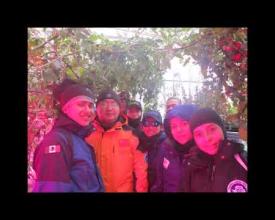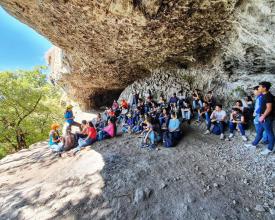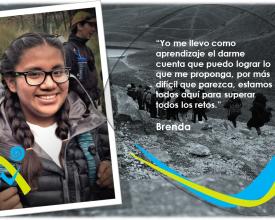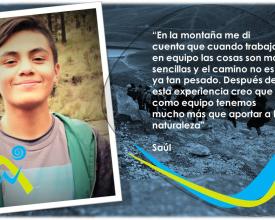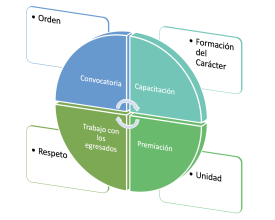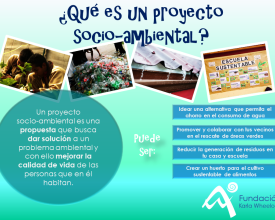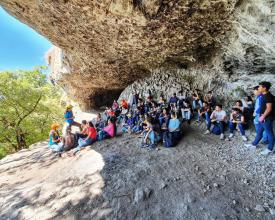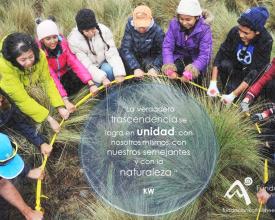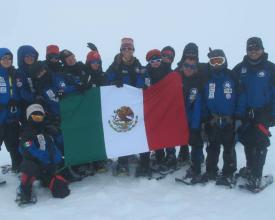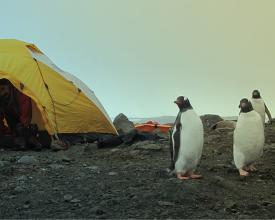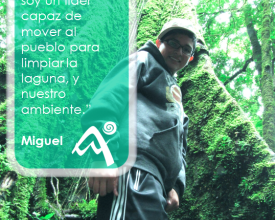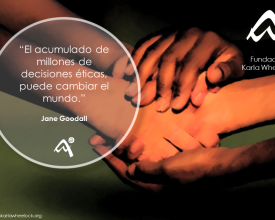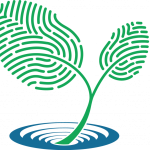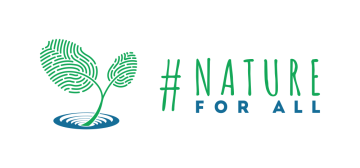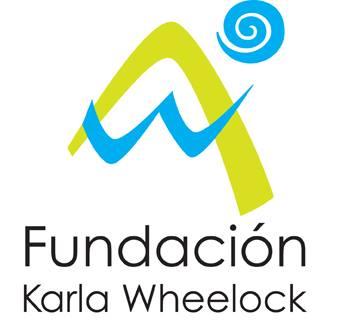
Karla Wheelock Foundation's Sustainable Ethical Leaders Program
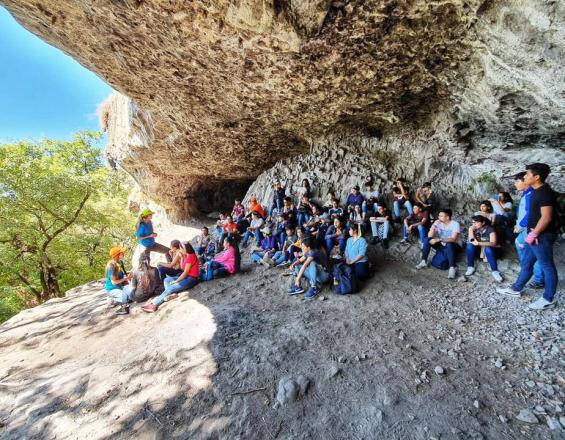
Karla Wheelock, the first Latin American to reach the 7 summits of the world, has sought to instil in the hearts of young people in Mexico a love for nature and a firm commitment to work to improve and conserve its enormous wealth. This is how the Sustainable Ethical Leaders Program was born, a project that seeks to bring together young people from low-income schools to undertake projects that improve the quality of the environment and the quality of life in their community. The program has been transforming the lives of thousands of young people for 10 years through contact with nature and transforming these experiences into skills that help them become agents of change in their families, schools and communities.
The objectives of the program coincide with the objectives that the #NatureForAll movement seeks to promote, so Karla Wheelock did not hesitate to add her initiative to this global movement.
Context
Challenges addressed
"If you want to do a child good forever...educate them, if you want to educate them...challenge them, if you want to challenge them, lead them deliberately into adventure."
Karla Wheelock
People do not make sustainable decisions in their daily lives because they lack this contact with nature. The KW Foundation's program seeks to link society, business and government to generate a program that will put young people in touch with nature and create ethical leaders who will change the reality of a country.
Location
Process
Summary of the process
All components of the program are linked through the four values that are instilled in participants order to create young leaders who are willing to transform their lives and their environment, and who seek to contribute to the health of our planet and motivate others to do the same thing. These values are: 1) Building character. 2) Order. 3) Respect. 4) Unity or Solidarity.
Building Blocks
Call for Action
Launch a call to public schools in Mexico City for five children and one student to propose an environmental project for their schools.
Enabling factors
Agreements with the Ministry of Education that would allow the issuance of a call for action in public schools.
Lesson learned
1. Both children and teachers were not clear about what it means to undertake an environmental project, so this had to be taken into consideration.
2. The work to keep the government involved is complex because it must be managed with each governmental change and that becomes a very tiring endeavour, so we are now looking to create a legal initiative where children must prepare an environmental project in their schools in order to graduate.
Training Program
The transformation of meaningful learning comes precisely when the elements of knowledge and contact with nature converge for the participants, including 4 key values: 1) Building character, 2) Order, 3) Respect and 4) Unity or Solidarity.
Each activity, each expedition brings with it the strengthening of the participants' learning, with sensory and emotional exercises.
Enabling factors
In the case of the Karla Wheelock Foundation, it was she who developed all the programs, planned the logistics of each trip, created the agreements and sought funding. In order to do so, she was also in an ongoing learning process where every day she had to become even more professional.
Lesson learned
The process gave rise to a learning model, where the children learned, the trainers learned from the children, the parents learned from their children, the school learned from its students and the program learned with each expedition in order to improve its performance.
Prizes for the Winners
While all participants entered a training program, the winners won an extraordinary trip to Antarctica, for which they also had to prepare their minds and bodies.
On that trip, they also learned about the scientists who monitor the climate station and the site. There they saw how everything is interconnected and that their local projects had an impact on climate at the local level.
Enabling factors
1) Funding: each expedition required financial resources that were managed by companies that sponsored the program.
2) Agreements with scientists or administrators of the Natural Protected Areas. The sites visited are not open to the public, so visiting them involved a process to obtain the appropriate permits.
Lesson learned
It was very expensive to take them to Antarctica and it was only possible to take very few teams. That is why we started to give prizes to more teams, taking them to other natural protected areas, closed to mass visitation, where more children could have a learning experience and a larger number of children would be selected as winners.
Follow-up with Graduates
The program includes working with the graduates who become "fellows" of the program and help subsequent participants.
Enabling factors
Continuous training of graduates so that they can in turn teach the younger ones.
Linking up with groups that already have performed previous work, such as the boy scouts.
Lesson learned
Children learn a lot from their peers, sometimes much more than they learn from their teachers.
Follow-up with graduates gives these young people the opportunity to continue contributing to the nurturing of nature and sustainable development.
Impacts
Among the main achievements are:
8,086 students involved;
16 training workshops for teachers;
25 training workshops for students;
2,120 leaders who reached their first summit during the Nevado de Toluca expedition;
11 expeditions per year in Mexico and Antarctica;
over 5,500 "MY SUMMIT, MY DECISION" manuals distributed;
more than 700 schools have participated;
more than 600 socio-environmental projects have been undertaken by young people in high school.
Beneficiaries
8,086 students with projects in more than 700 schools, generating more than 600 socio-environmental projects.
Sustainable Development Goals
Story
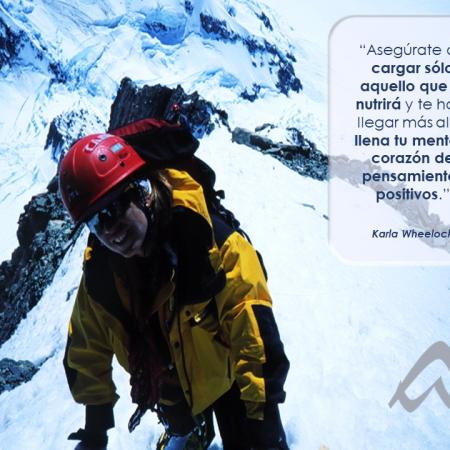
It was 1999 when a Mexican woman from Saltillo, Coahuila, embarked on the hazardous journey to reach the summit of Mount Everest by the northern route, becoming the first Latin American woman to achieve this feat. This was Karla Wheelock, a woman with an iron will, who after coming down alive, owed a debt of gratitude to the Mountain, the great master, and to nature, that in their mystical generosity enabled her to return with something more than the glory of the summit: a heart ready to change the world.
After this, she started a program to work with the children and youth of Mexico. She spent over 10 years launching call for tenders in public schools for limited resources from Mexico City in which she had the challenge of creating groups of five students and a teacher to undertake environmental projects.
All participants start a project in which through trips to various nature spaces, they learn skills that enable them to progress in their projects and initiate a process of personal growth.
At the end, the winners receive the grand prize of visiting pristine locations in the world, such as Antarctica or Biosphere Reserves such as El Triunfo or the island of Espíritu Santo, and on these trips, they are surprised by and learn from nature, because as Karla Wheelock says, nature is the Great Master.
The work of Karla Wheelock is a clear role model for #NatureForAll, a global movement whose mission is to inspire love for nature.

